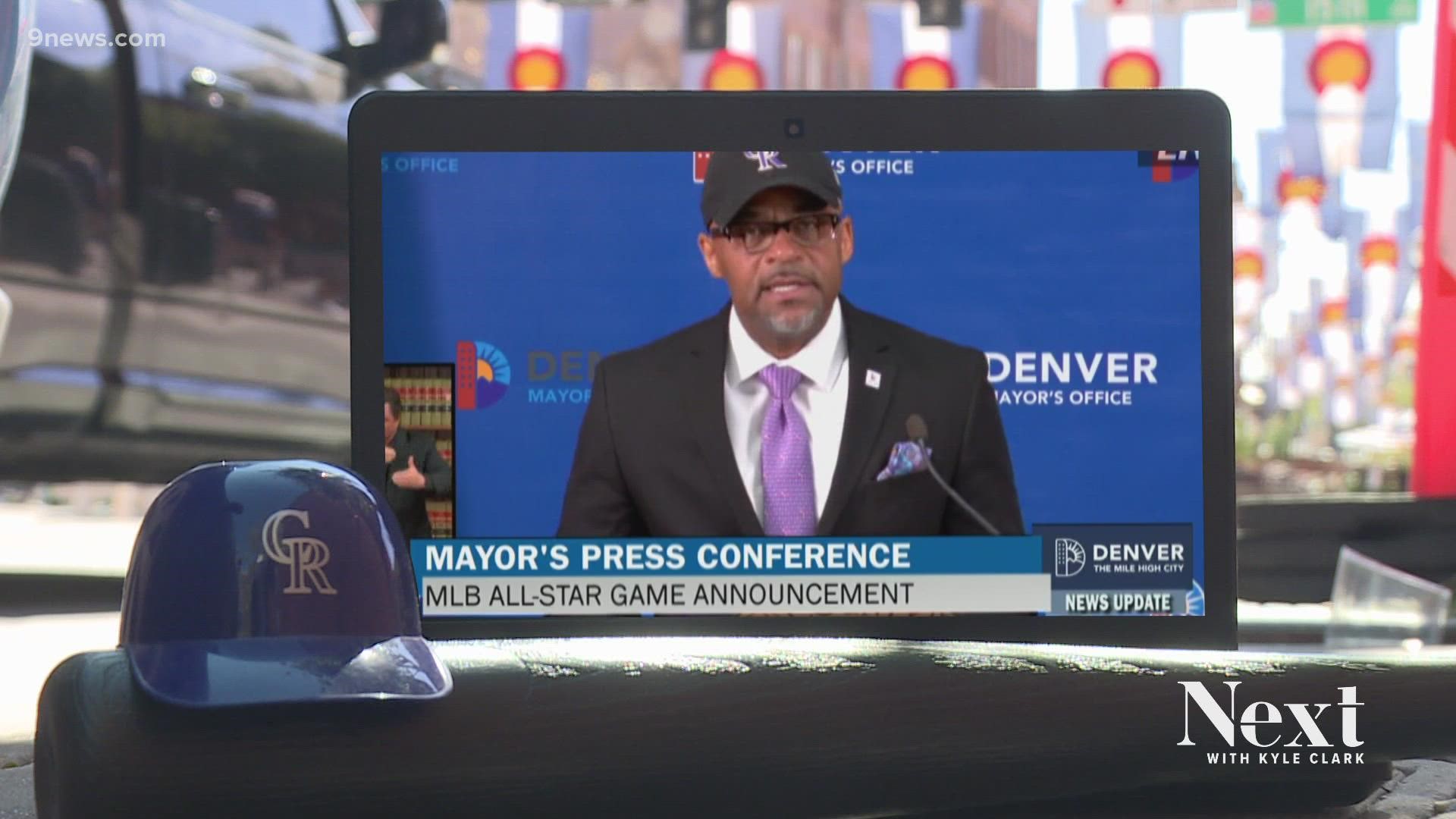DENVER — It is September, and it felt like fall on Monday.
Our sports focus has shifted to football.
However, until Wednesday, it is still summer. And that's baseball season.
When Major League Baseball's All-Star Game came to Denver in July, Mayor Michael Hancock and Colorado Gov. Jared Polis both said it would mean significant economic impact.
"By some estimates, this event will mean more than $100 million to our local economy," said Hancock on April 6.
"Our office of economic development and international trade estimates the All Star Game, the festivities around it, would add about $190 million in revenue this year in Colorado," said Polis on April 6.
What do the receipts show?
Denver's Department of Finance already has July sales tax receipts, but the state is still compiling that data and it will not be available for another week.
Based on the Denver's sales tax data, the city took in $12.8 million more in sales tax revenue in July compared to July 2020. The sales tax revenue difference was just $6 million in July 2021 compared to July 2019.
"The mayor referenced a $100 million economic impact, not a $100 million tax revenue increase, though an increase in tax revenue is a part of the overall economic impact. That economic impact isn’t isolated to just the timeframe of the major event, the event is the catalyst for a multiplier effect over a period of time," a Hancock spokesman said in an email.
According to the city, $173 million more was spent in Denver in July 2021 compared to July 2019. It was $381 million more in July 2021 compared to July 2020,
So, did the All Star Game result in a $100 million economic impact?
"No," said University of Denver Finance Professor Mac Clouse. "Way too much for a single event in one month, that's for sure."
Clouse had doubts about the $100 million number when it was announced in April.
He compared July 2021 to July 2019 since the pandemic significantly dropped sales and sales tax data for July 2020.
"The stadium was full, but how many of those people were from out of state and bringing in new money versus the people within the state with existing money?" said Clouse.
Even though $173 million more was spent in July 2021 compared to July 2019, Clouse said you cannot base most of the spending on a weekend baseball event.
"The only parts that were really related to the All-Star Game would be things like the 'food and beverage' and 'accommodations' and maybe a little bit of an argument of 'miscellaneous store purchases,'" said Crouse. "Construction was not impacted by that. Wholesale trade."
The city tracks sales tax revenue based on specific industries.
For example, "Food Services and Drinking Place" (think: restaurants and bars) saw a nearly $4 million increase in sales tax revenue in July 2021 compared to July 2020. However, compared to July 2019, the increase was just $126,000.
"Arts, Entertainment and Recreation" (think: amusement parks and concert venues) saw a $283,000 increase compared to July 2020. It may not sound like a lot, but that was actually a 233% increase. The difference from July 2021 to July 2019 was just $27,000.
"Construction" sales tax revenue was up almost $200,000 from July 2020 and fairly even to July 2019. A category like that, or even "Electronics and Appliance Stores" or "Motor and Vehicle Parts Dealers" brought in more money, but likely do not have an impact because of the All Star Game.
"Did we benefit by having the All Star Game here? The answer is yes. Yes, of course. Did we benefit by much?" said Clouse. "The issue in there is how much of that do we attribute to a single event versus how much do we attribute it to an economy that was coming back?"
Denver's hotels did see a boost in July.
According to the city, Denver's lodger's tax revenue was $3.2 million in July 2021 compared to $1 million in July 2020. However, the lodger's tax revenue is down $400,000 from July 2019. Denver's revenue per hotel room averaged $132 in July 2021, which was the most dollars per room since October 2019, when the average rate was $189. And in July 2021, 72% of rooms were occupied in downtown Denver. That is the highest occupancy rate since just before the pandemic began in March 2020.
SUGGESTED VIDEOS: Full Episodes of Next with Kyle Clark

